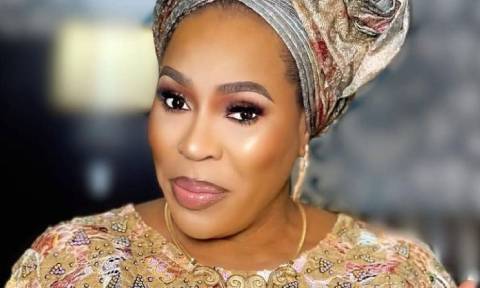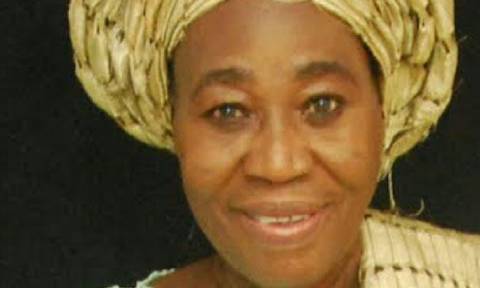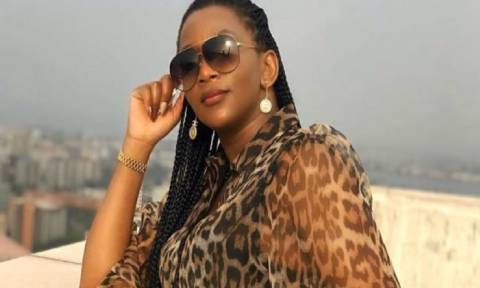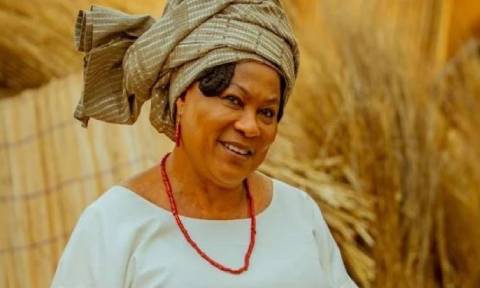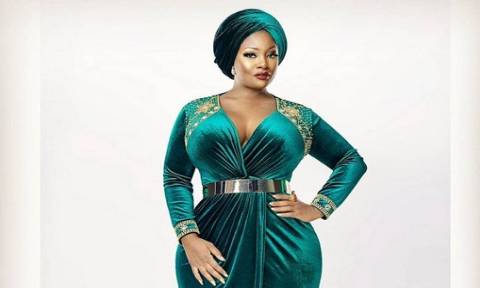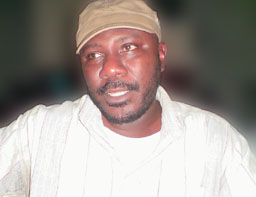
It was meant to be an impromptu interview appointment, but it ended up revealing the activist in actor and University of Port Harcourt theatre arts lecturer, Sam Dede. His burning desire for better conditions for the people of the Niger Delta, where he hails from, came to the fore during the chat with EMEKA MADUNAGU. You have been away from Nollywood for some time and people have been wondering what you have been up to.
Many other things have been struggling for the little time available. More than anything else, I’ve been doing a lot of research on the Niger Delta. We are looking at how we can use community theatre, you see, theatre for development mode, to see how we can reach people basically for community capacity building. So, that much has been taking the little time available. So, there really isn’t much to do the work available. That is not to say that if there is a good script, there is a challenging role to play, I won’t be at the double to play it. I will be on stand by, there is no problem about that.
You have acted in a number of Nollywood films that depicted different things. People would think that by now, you would have sponsored your own film. Was it because you didn’t make money like some of your colleagues that you felt that this wasn’t the place for you?
No, no. I wouldn’t say that. First of all, I didn’t do a huge number of films. If you notice, I haven’t done the number of films that most actors have done because I have had to share my time with my academic research and teaching in the university and some other community-based projects. Of course, the Niger Delta struggle has also been a thing to cope with. I wouldn’t say that. But in terms of producing or doing something on the Niger Delta, I would say it is one of the reasons for stepping a little bit out of the way, so that one can gather or create the financial muscle to do this. My plan now is to produce a movie; the script Children of the Mangrove Swamps is ready. It is already written as a stage play. It was written as a novel first and then adapted to stage and now to film. That will come up in the next two months or so.
So, what is the theme? What is the main story about?
It is on the struggle, just like the title suggests. It is basically on the Niger Delta struggle and it proffers a way forward. It shows the conditions of the people and the physical militant struggle of the young people. It also proffers the way forward to putting an end or checking the crisis.
One thing that people complain about in Nollywood is quality. What kind of quality do you think they are really talking about?
Basically, I think our problem has been on the technical side. That was what I meant when I said there had been a lot of shouting. It has been like telling a deaf man a story. We have a lot of untrained people in Nollywood. They are not professionally competent to practice. The roadside tailor is not qualified to design costumes for actors. He is just a tailor. It is a profession. You have to be schooled in it, you have to be trained in it. There are all kinds of people in Nollywood, working as professionals but it is more or less and all-comers’ affairs; it is a bandwagon thing. Somebody thinks that he has a brother who has just graduated from school. Therefore, he has to get a job for him and he brings him on board as assistant director on a project. To do what? These are professional, specialised areas. You have to specialise, you have to be schooled to be able to practice. That has created a lot of technical problems. So, that has created a lot of problems in Nollywood. The solution to all these is that we need to collaborate, we need to attract foreign partnership. That was I talked about the enlightened investor. The enlightened investor has to come in to take a project that far, to the extent of wanting to partner with Panavision, 20th Century Fox. They will come, they will and work with us. That is exactly what I mean. I’m not saying that people should go and jump into a lake because they are not schooled. That is not what I’m saying. But admit the fact that you are not professionally trained to practice in this industry. That has been my quarrel with almost everybody there.
One of the films you featured in while you were actively in Nollywood was Isakaba, which was a portrayal of the vigilante work of the Bakassi Boys. But, eventually, the Bakassi Boys came to be identified with evil and ignoble acts. Do you have any regret playing that role?
No, not at all. At the time that we did Isakaba, that vigilante group was in vogue in the entire South-East, particularly in Aba, where it started, and some parts of Onitsha. At that time, we were careful not portray these people as mere traders who were going around cutting the heads and hands of people. If you notice, the leader of the group was someone whom a lot of people would say was too elitist to be leading that kind of group of people. That was how we got to twist the character. If anything, I think that was what endeared the group to a lot of people who saw the film, the way we portrayed it. At that time, there was a drastic approach to the problem of armed robbery. But, eventually, some of these politicians started to make use of the Bakassi Boys and a lot of things went wrong. Eventually, they just faded away. I think their time was up. This was a group that started purely with noble objectives but politicians came in and used them as thugs and everything just fizzled out. Nobody even wants to hear about the Bakassi Boys anymore.
Did you receive any threats as a result of the role that you played in that film?
No. instead, I became a friend of the group. They commended me for portraying them the way I did in that movie. I remember once on my way from Enugu, I encountered them at Aba. They gave me a 21-gun salute. It was such an experience that I will never forget all my life. I felt honoured that people appreciated what I was doing. To think that they would stop everything, bring a whole area to a standstill just to pay respect to me. I became close to the leader of the group and we exchanged calls for sometime.
Having left Nollywood, you are a lecturer in University of Port Harcourt…
I’ve always been a lecturer, even before Nollywood.
How was it like juggling both roles, as a lecturer and an actor?
May be that explains why I haven’t done that much number of films. I’ve been busy with my job at University of Port Harcourt. Like I said, the community project and activism have taken a lot of my time. One way or the other, we found time during holidays to work in Nollywood. There was always the time that did not interfere with school work. During holidays, when all the work had been done, I found a little time to do Nollywood work.
There was also Igodo, in which you featured…
Yeah, Igodo is eh…
And there were a lot of fetish things in it…
Igodo is 10 years this year.
Around that time in Nollywood, so many films ran the same fetish theme. Did you just key into a fad in the industry when you acted in Igodo?
Igodo was to set the trend in that genre of movie-making in Nollywood. It was a movie that took everybody off their feet. Everybody felt they could do something like this and a lot of copying went on. As per the ritual aspect, we (Nigerians) are a naturally ritualistic people. We do rituals for everything. What I want to agree with is that at that time, it became too much of an obsession because every producer wanted his movie to be like Igodo. So, there was a bandwagon copying effect and it now looked as if there was nothing we could do without rituals. Everything (in Nollywood) looked as if one had to consult juju (fetish). But that is not to say that it is not a part of our social anthropology. We do these things. We consult the oracle. Even the church people…
Do you consult oracles personally?
Me?
Yes, in real life?
In real life?
Yes.
(Laughs) That is not something I want to tell you now. But when the need arises, we do it.
Would you then describe yourself as a Christian, Moslem or traditionalist?
I’m a Christian. I’m a Christian. I could also say that I’m a traditionalist. I believe in the traditions of our people. Those rituals that we do traditionally, the Christian doctrine cannot quarrel with them. That is what I think. And the moment I begin to find that there is going to be a conflict on these two fronts, then I would have to give up one for the other.
Which one would you give up?
I would give up Christianity.
For fetish pratices?
When you say fetish practices, it depends on how you use it. There were gods, there were deities that were there before Christianity came. So, how come that suddenly, we want to throw all those things away? All these deities were created by the same God.
If your pastor reads this interview and summons you, can you say the same thing before him?
I don’t go to the kind of church where they would need to ask me things like this.
What church do you go to?
I’m an Anglican. I was brought up as an Anglican. And I don’t want to relate anything fetish to the church. It is strictly my personal belief. My belief is that I do not see anything wrong with our traditional modes of worship.
How did you cope with scandals in Nollywood? Many of your colleagues in Nollywood have many hanging around them.
I didn’t have any. Can you remember any around me?
But you associated with a lot of ladies in the films you acted.
But I didn’t come out with any scandal. Well, associated, in terms of doing professional work, yes. But outside professional work, I didn’t have any relationships.
How well are you doing in terms of marriage?
Well, I’m married and I have three children. The only problem, and I don’t think it is a problem, is that there are too many engagements to take care of. Sometimes, that takes me away from my family for upwards of one month. Otherwise, I don’t have any other problem.
Does your wife work along the same lines as you do?
No. My wife is a teacher. She is a linguist.
In UNIPORT?
No.
How did you meet her?
She was a student here. She graduated from University of Port Harcourt. She did a Master’s here too. She is just a quiet person doing her work on her own. She has no relationship with Nollywood. I am the Nollywood person.
How well have lecturing and Nollywood paid off for you?
This is my first love, to lecture, to train theatre practitioners. The most important thing is to watch their progression, from the beginning when they (students) come in as greenhorns and you begin to discover their individual talents. You then discover that one has a problem with speech, another has a voice problem, the other person ahs a bodily or gesture problem, you then take the problems and straighten them out personally. I think that is the most fascinating thing about training people in theatre arts. On second thoughts, I doubt if there is any other thing I would have liked to do. I enjoy this job (lecturing).
Has it brought you a jeep?
It hasn’t.
I saw you walking around. You should have a jeep and your own house by now.
I own a car but it is not the kind of… I’m not a loud person.
What kind of car do you drive?
I drive a Volkswagen Bora.
Why didn’t you join your Nollywood colleagues who have big cars?
No need. No need. I don’t need it.
But it will accord with your status.
Yes, it will. It is not as if I didn’t make enough money from Nollywood to acquire that. But, I don’t think I need anything flamboyant. I don’t need it.
Why?
Because a car, no matter what brand, is still a vehicle, and that is its essential function. That is just what I like.
So, if we were to ask, how much are you worth as an actor?
Ehm, that is not a question I can answer straightaway.
You can call your bankers.
No. I won’t even want to do that. For me, I don’t look at it so much in terms of what the money is worth. Although it matters because I will not go to your location if you don’t pay me what I want. But, it still isn’t about the money. It is about practicing in an industry that I believe can be better. I graduated from school and swore that I was going to earn a living as a theatre practitioner.
The idea was to run down to Lagos after graduation, try to fit into the arts circle and get along. But we did it without a kobo, it was virtually nothing then. We worked in the industry as theatre arts practitioners, actors, directors. It was a time when not a kobo was coming forth. Today, you have all kinds of television reality shows that last for three weeks and the winner goes home with a car and N2.5 million. We didn’t have that kind of opportunity when we were practicing as theatre people then. There are a lot of things going on in the entertainment industry now. We need to go beyond this and get to partner with people who will take us to another level.
What is the highest fee you have ever been paid?
The highest I have been paid. Should I reveal that to you?
Yes.
No, I don’t think I should.
Why not? Others tell us.
It was over N1 million, anyway.
Which film?
No, I don’t want to tell you that.
Maybe Igodo?
Igodo was done 10 years ago. That was when nobody was paid, perhaps, more N150,000 or even N100,000. It couldn’t have been that. I would like to keep that to myself but like I told you, it was over N1m.
You are so passionate about the Niger Delta struggle. Why? Have you suffered any personal loss as a result of the situation in the Niger Delta?
No, I don’t think I need to suffer a personal loss for me to feel passionate about this struggle. I think every well-meaning, well-informed, well-enlightened indigene of the Niger Delta should be involved in this struggle passionately. How do you make up for over 50 years of injustice? And it is still going on. We begin to wonder that when is all this madness going to end? For me, it is just like what Prof. Wole Soyinka said, that “Justice is the best condition of humanity.” If you cannot get justice, there will be no peace. Without peace, retaliation won’t cease. So, I believe that anybody who is an indigene of the Niger Delta should be passionately involved in this struggle.
Do you wear the Che Guevara cap as part of the struggle?
Ehm, this cap has always been a trademark, let us say even before I started to keep a clean-shaven head. The cap has always been a part of me, to a very large extent. Yes. Maybe the cap has changed to a Che Guevara type. The baseball kind of cap (I used to wear) has given way to a different kind of cap.
What does this cap mean to you?
It reminds me continuously that we are in a struggle. We are in a struggle.
Are you likely to stop wearing it someday?
When things get better, I will remove it.
Better in what sense? Better with the country or with you?
Not with me. I’m not fighting a survival battle or for personal gains. I look at the people of the Niger Delta and I think back to over 50 years of oil exploration but nothing to show for it. Instead, people come in, drill all the oil and when there is nothing more to take away, they convert it into a museum where nobody gains anything from.
There is nowhere in the world where that is acceptable. But, I think that every well-meaning, well-informed Niger Delta person will know that these are desperate times. We will wake up one day and find that the world has no more need for oil. What do we do? Only recently, we had GM Motors exhibiting an electric-powered car.
There is this ongoing experiment with the use of ethanol as a fuel for powering machines. One day, we will wake and the whole world says, “To hell with your oil.” What do we do then? What have we gained from it? That is why I say that the times are becoming desperate. For the little more time we have to explore oil in our communities, what do our communities gain? That is why I say at this stage, (government should) begin to pay attention to the immediate host communities.
The immediate host communities must benefit from this madness before it comes to a halt. Look at Oloibiri, there is no drop of oil there anymore. What have they gained? Nothing. Instead, there is a museum there. It is an abandoned project. I’m happy that report of the Niger Delta Technical Committee paid attention to the issue of host communities. What do the children of host oil-producing communities get? No scholarship, no training. Do they have light? They don’t. do they have drinking water? They don’t. if it is water that they are going to get for the millions of barrels of oil you have taken from them, let them get it.
How was growing up like?
I was born in Lagos. I grew up briefly in Sapele and lived all my life in Port Harcourt. There is virtually no town in the Niger Delta that I have not had a connection with. I was born into a family of eight. I’m the last in the family. We were brought up under very strict conditions.
There were rules to be obeyed. My dad was a soldier, who fought in the civil war. He was in the medical corps of the Nigerian Army. After the war, he became the chief medical superintendent, General Hospital, Port Harcourt before he died in 1972. he was also at National Orthopaedic Hospital, Igbobi. That was where all of us were born. Our home was like a military regiment, where you had to obey the time to do this, time to wake up, time to have dinner. You knew that you had to pray before going to bed. You had to sing a particular song on your way to bed.
The song was, “Wherever you go, wherever you be, do not say yes, when you mean to say no.” From time, that song became a major part of my life. It was not until I became an adolescent that the deeper meaning of that song began to occur to me. I then made it a personal principle that why should I say ‘yes,’ when actually, I want to say ‘no?’ That is why I say that we are being hypocritical. Everybody intends to say that these are the gains that militancy has brought to us but nobody wants to say it because they don’t want to be branded as rebels or something like that. But we cannot all go that way.
Where are you from? Your surname, Dede, sounds like you are from the South-East.
I’m a pure Niger Delta man from Okrika. My name is a short form of Dedetoku, meaning Glory of the Morning. I didn’t shorten it. It was a family name. I came to know the name from my grandfather.



